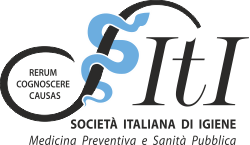Anti-meningococcal vaccines are inactivated (ie obtained with fragments of the bacterium) and conjugate (ie bound to a protein to make them more effective) vaccines, which are administered intramuscularly.
In Italy there are two types of anti-meningococcal vaccine that can be used in children:
- the conjugate vaccine against serotype C (MenC): this is the most frequently used, and it can be administered from the third month of life and protects only against serotype C;
- the recently available tetravalent conjugate vaccine (Mcv4): there are two of these, one that can be administered from two years of age, and one from 12 months. They protect against serotypes A, C, W135 and Y.
In Italy the National Vaccination Plan provides for the use of MenC in all children aged between 13 and 15 months, in conjunction with the MMR vaccine (although it is also possible to vaccinate earlier in higher risk subjects, with doses at 3, 5 and 11 months). Vaccination is also indicated for non-immunised adolescents.
The tetravalent conjugate vaccine (Mcv4) should be administered to those who visit countries where the meningococcal serotypes contained in the vaccine are present. However, bearing in mind the present situation of large-scale displacement linked to globalisation, in Italy, the quadrivalent vaccine is also available for those seeking better protection. In this case, it can be administered to children who, despite having already reached 2 years of age, have not yet been vaccinated for MenC, or to adolescents aged 12-16 as a booster for MenC and to complete coverage.
As well as the two above-mentioned age groups, the vaccine is strongly recommended for subjects deemed to be at risk, either because they suffer from certain diseases or due to the presence of particular conditions:
Illnesses:
- thalassemia and sickle cell disease;
- lack of, or deficiency of, spleen function;
- conditions associated with, for example, organ transplantation, anticancer therapy, therapy with high doses of corticosteroids;
- congenital or acquired illnesses (eg HIV);
- severe chronic liver disease, kidney failure, type 1 diabetes mellitus;
- loss of cerebrospinal fluid;
- other immunodeficiency conditions (eg congenital complement deficiency, properdin deficiency and others);
Living conditions:
- infants attending nursery schools;
- youths living in boarding schools, attend discos and/or sleep in dormitories;
- military recruits;
- anyone travelling to regions of the world where meningococcal disease is common, eg certain parts of Africa;
- people who could be infected during an epidemic.
For further information, it is important to consult a paediatrician for advice.
Children with a severe allergy to any component of the vaccine, or who have experienced a severe allergic reaction to a previous dose of the anti-meningococcal vaccine should not be vaccinated.
It is always necessary to inform the doctor of any serious allergies the child may have. Children with mild illnesses can generally be vaccinated safely. If, on the other hand, they have moderate or severe illnesses, it is advisable to delay vaccination until they have recovered.
With the exception of children with sickle cell disease or absence or problems of the spleen, the anti-meningococcal vaccine can be given at the same time as other vaccines.
Like any other drug, vaccines can cause serious problems, such as a severe allergic reaction. However, the risk of any vaccine causing serious harm or death is extremely low and most vaccinated children do not encounter any problems.
After any medical procedure, including vaccination, syncope (a short fainting spell) and related symptoms (eg jerky movements) may occur. Sitting or lying down for about 15-30 minutes after vaccination can help prevent fainting and injuries caused by falls. If dizziness, visual disturbances or ringing in the ears occur, a doctor must be consulted.
People who receive the anti-meningococcal vaccine often experience mild side effects, such as redness or pain at the injection site, malaise, nausea, headache, and muscle pain. These problems usually last no longer than one or two days and are more common following the use of the tetravalent vaccine.
In 2% of cases there may be a mild fever, while severe allergic reactions are extremely rare.



